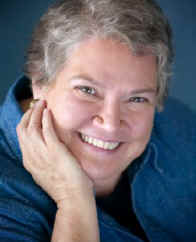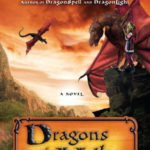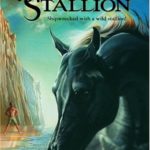Real Life Meets Fiction
 Last month at the Christy Awards, agent Lee Hough who has been battling brain cancer for two years, was honored with a Lifetime Achievement Award. This week he wrote publicly that the cancer has returned. Originally his MRI was clear, but he began to experience some of the symptoms he’d had earlier. His doctor ordered a second scan and from those results determined that the cancer is terminal, that his life expectancy would be two months. That was seven weeks ago.
Last month at the Christy Awards, agent Lee Hough who has been battling brain cancer for two years, was honored with a Lifetime Achievement Award. This week he wrote publicly that the cancer has returned. Originally his MRI was clear, but he began to experience some of the symptoms he’d had earlier. His doctor ordered a second scan and from those results determined that the cancer is terminal, that his life expectancy would be two months. That was seven weeks ago.
Lee has resigned his position as Vice President at Alive Communications, and is preparing for what’s next. He said in his Caring Bridge journal
I’d like to close this Caring Bridge with these beautiful contrasts from Paul:
* That we are sown a perishable body, but raised imperishable.
(1 Cor.15:42)
* Sown in dishonor, raised in glory (43)
* Sown in weakness, raised in power (43)
* Sown a natural body, raised a spiritual body (44)My friends, we’ve prayed for healing and whether that may still yet happen in this temporal world or not, I believe I’m about to receive that permanently.
Thank you all for showing Paula and I Jesus in the way that you have prayed, loved, and supported us through this journey.
Sown in weakness, raised in power.
Lee
 Then today I get Donita Paul‘s newsletter in which she discloses more about the recent health struggles she’s been facing. As some of you might know, she suffered a mild stroke back in March which affected the vision in one eye. She lost eighty percent of her sight and the doctor said this was permanent. The good news is that her physical therapy included reading! She also reports that there has been improvement and she is able to write again, though her health issues have obviously set back the completion of her current project. She’s in the middle of a new trilogy, the first book scheduled to release early next year.
Then today I get Donita Paul‘s newsletter in which she discloses more about the recent health struggles she’s been facing. As some of you might know, she suffered a mild stroke back in March which affected the vision in one eye. She lost eighty percent of her sight and the doctor said this was permanent. The good news is that her physical therapy included reading! She also reports that there has been improvement and she is able to write again, though her health issues have obviously set back the completion of her current project. She’s in the middle of a new trilogy, the first book scheduled to release early next year.
Both Lee’s situation and Donita’s remind me that we’re not playing around. Life is real and what we do with it determines what comes next. That’s true for readers as much as it is for writers.
So much of culture, in the US at least, is involved with living for what makes us happy. Consequently, the best thing for the majority of the work force is the weekend.
When it comes to students, a good many in college are there for the party. That mentality has filtered down into high school and even into middle school.
Readers can adopt that same perspective–I read to feel numb to real life.
Writers can feed that focus–we write to entertain.
If you’ve spent any time here at Spec Faith, you know that those of us writing regularly think there’s more to stories than a jolt of adrenalin or a hard yank on the heart strings. Stories should matter the same way life does. They are an extension of the author and his or her purposes.
If we are to speak the truth in real life, then we should be speaking the truth in our stories. If we are to edify one another in real life, then our stories should edify. You get the picture.
It’s not always easy to remember that this is what stories are all about–or what they should be all about. As readers, we need to be alert and aware. Where is truth? Is there something edifying?
As writers we should be fixed on writing well. A funny story–or a sad one, an adventurous one, a mysterious one–without truth is an empty shell.
On the other hand, truth laid out point by point is not a story. It’s like all the vitamins and nutrients we need to live, stripped of the delicious flavor of food.
Stories with power show the truth rather than telling it, and we writers need to become experts at our craft. After all, our stories are part of the bigger picture–life–where people get cancer and have strokes and turn to God for help and hope, where they find comfort in the prayers of God’s people, and where they inspire the rest of us with their courage and trust.
Our stories need to do that. They need to be more than frivolous time wasters. And we readers need to seek out the stories that aspire to something greater than the promise of a few hours of oblivion. They need to matter because life matters, because God has put us here for much more than filling in the blanks.










































I just finished up reading James Scott Bell’s Conflict and Suspense, and he touches on this. All books should have a theme, and that theme is what sticks with you afterward and makes you think.
He had some great examples from a wide array of books, and one was from a hard-boiled detective novel, of all things. The detective is getting ready to save his secretary from the bad guys, and he’s standing outside the door with a machine gun, pondering if this makes him as bad as them. Then he decides that no, he has to be hardened and soulless to take out the bad guys, so other people can live the lives he can’t have. He’s the one standing between them and bad guys. So he goes in and blows the bad guys away. For a hard boiled detective novel, I thought that was a pretty good moral.
In all stories, there comes a point when the hero must dig deep and figure out what he’s fighting for. That’s the real meat of a story and it gives us that little thrill. That’s the point of the whole novel. Sometimes it’s really good and sometimes it’s not, and books live or die by that character’s choice.
Diana Wynne Jones just died, and she wasn’t saved. I read Reflections, a collection of her essays on writing, and quite a few anecdotes from her bizarre childhood. Getting to the end was heartbreaking, because she never reached a point where she could look back and say, “God meant it for good.”
Even though her characters reach that point in some of her books.
Really? Diana Wynne Jones just died? I kinda feel bad that I haven’t read her books, just saw the Miyazaki interpretation of “Howl’s Moving Castle,” which I did like, but was apparently much different than the book.
It’s been over a year ago now, but it still seems really recent to me. I feel like I’ve lost a friend. I found her through the Howl’s Moving Castle movie, too. Then the book was so much better! All of her books are good, and all libraries have a couple. I just reread Archer’s Goon and laughed all the way through. I also recommend the Lives of Christopher Chant, and Dogsbody. Those are my top favorites, but you can start anywhere.
Thank you for this reminder! Very needed right now in my writing life (and the rest of life too.) Thanks
Carpe Diem